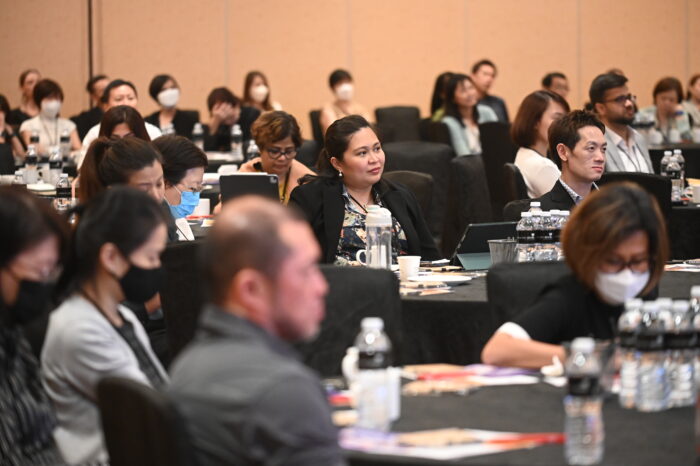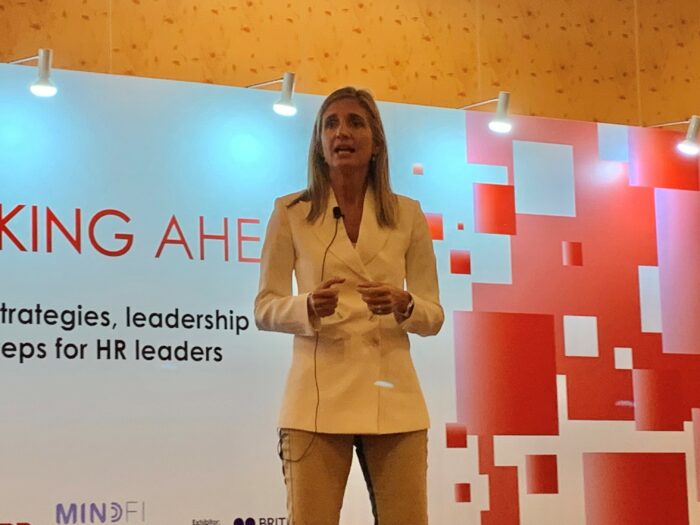New benchmarking tool aims to uplift Australia’s workplace standards

The benchmarking tool is designed to help organisations focus on employee wellbeing and improve organisational leadership.
70:30 hybrid work model proposed in the Philippines

A 70:30 hybrid work ratio (70% onsite and 30% work-from-home) has been recommended to the government to sustain economic recovery.
South Korea considers banning work texts outside working hours

A proposed bill prohibits employers from making repeated or constant work-related instructions after statutory working hours.
Workday supports Air Liquide’s HR transformation in Asia Pacific

Air Liquide is also creating better employee experiences and making itself an employer of choice with Workday HCM.
Singapore amends job ad rule to streamline recruitment process

The government has reduced the job advertising duration under the Fair Consideration Framework (FCF) from four to two weeks.
Four-day workweek trial reviewed in the UK

While offering benefits such as better performance and higher team morale, the jury is still out on the feasibility of a four-day workweek.
The Philippines faces loss of IT talent if WFH scrapped

Employees of IT and business process management (IT-BPM) firms may resign if the government pushes for a return to 100% on-site work.
Malaysia wants more workers to undergo health checkups

The Ministry of Health (MOH) wants it to be compulsory for employers to provide a day’s leave to all employees to undergo health screenings.
HRM Asia Readers’ Choice Awards 2022: Last days to vote!

Make your vote count as HRM Asia Readers’ Choice Awards 2022 recognises the best HR solutions and service providers in the market today.
Companies in India urged to prioritise employee health and wellbeing

Although 80% of the workforce has reported mental health issues over the past year, only around 30% of the affected have taken steps to manage symptoms.
Workplace gender disparity widens in Hong Kong

Despite holding attributes to be successful, women have been paid less than their male counterparts over the last five years.
Thailand considers abolishment of daily employment

An amendment to the Labour Protection Act has been proposed to abolish temporary and daily employment and upgrading the status of workers.
Mental wellbeing a concern for young employees in Singapore

Youths in Singapore are also concerned about their employability and having the right skills to succeed in the workplace.
Redefining the role of HR leadership in reshaping work

More than 170 HR and business leaders discussed topics like modern HR mindsets, flexible work and employee wellbeing at HR Leadership Series: Live.
Companies in India use promotions to retain staff

At a time of talent shortage, several companies are giving off-cycle promotions to eligible employees as they attempt to hold on to experienced staff.
Malaysia offers gig workers more protection

The Sharing Economy Committee (SEC) will train and verify gig workers, as well as create job placements in high-value jobs.
Taiwan officially approves minimum wage raise

Taking effect from January 1 next year, the monthly minimum wage will be raised to NT$26,400 (US$855) and the basic hourly rate to NT$176 (US$5.7).
Japan’s job mobility falls below OECD average

Due to low unemployment and a stable job market, 2.9 million employees switched jobs in 2021, 630,000 fewer than in 2019.
Asian leadership can lead organisations to greater heights

A new report by the Centre for Creative Leadership (CCL) reveals a persistent gap in Asian leadership representation on the global stage.
Building workplace resilience across the organisation

Sleep, fulfilment, bounce, relaxation, and focus are the five critical factors needed to strengthen workplace resilience.
Gender inequality still prevalent in South Korea’s workplace

The employment rate for women in South Korea was at 51.2% last year, which was 18.8 percentage points lower than the male employment rate.
Employers in India choose ‘3 days a week in office’ schedule

Hybrid working continues to be the most preferred workspace strategy in India, with 63% of the firms currently adopting this practice.
Asia Pacific nations pledge to advance women’s economic empowerment

Member economies are encouraged to foster an enabling environment that promotes inclusive development and empowerment of all women.
Establishing hybrid leadership in today’s changing world of work

The first instalment of HR Leadership Series: Live will shed light on strategies that will shape the way organisations work in 2023 and beyond.
Employment Act implementation set for further delay in Malaysia

The Federation of Malaysian Manufacturers (FMM) is considering requesting another deferral of the implementation of the amended Employment Act.
What are the top skills employers look for?

Digital and data literacy are among the top 10 skills employees will need over the next decade, said Bernard Marr, author, keynote speaker and futurist.
Job hopping declines in Japan despite stagnant wages

Since 2021, the number of workers switching jobs dropped 310,000 to 2.9 million, marking a fall for the second consecutive year.
Some small business employees South Korea paid below minimum wage

Among small business employees, only 9.6% were paid extra for extended working hours and only 13.2% had annual leave provision.
Gen Zs in Singapore plan to relocate for work

An ADP report found over 51% of workers aged between 18–24, and 43% between the ages of 24–34, have planned or considered relocation for their jobs.
Does WFH hinder creativity and innovation?

Close physical proximity is requited to foster employee relationships that facilitate innovation, according to research from MIT.
